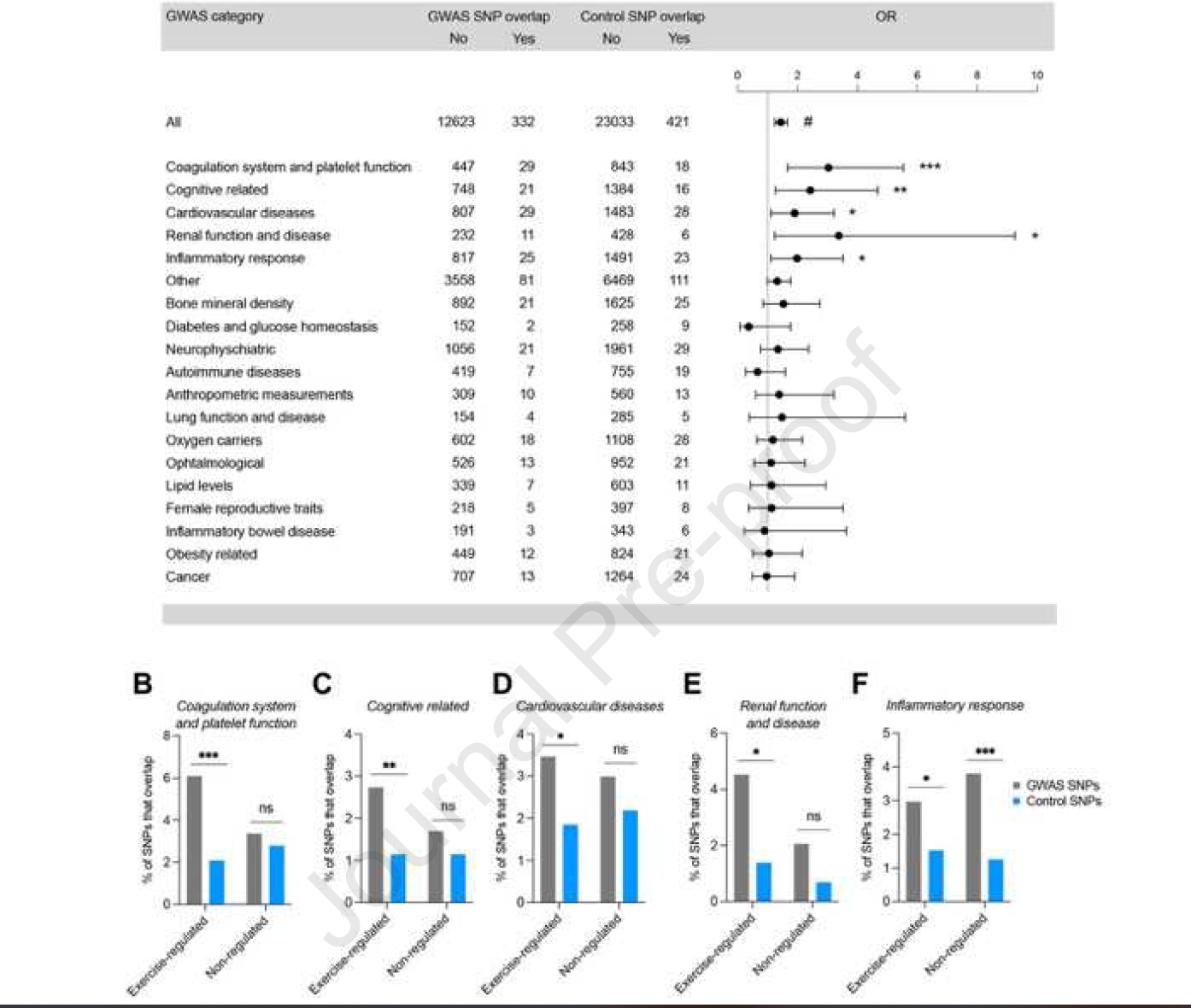Epigenetic rewiring of skeletal muscle enhancers after exercise training supports a role in whole-body function and human health
Kristine Williams Molecular Metabolism Available online 10 July 2021, 101290
Highlights
• Exercise training changes in skeletal muscle gene expression is enriched for secreted factors.
• The activity of skeletal muscle enhancers undergoes substantial remodeling after exercise training.
• Skeletal muscle enhancer activity and gene transcription are strongly associated.
• Exercise training-remodeled enhancer regions are enriched for GWAS SNPs associated with human traits and diseases.
Objectives
Regular physical exercise improves health by reducing the risk of a plethora of chronic disorders. We hypothesized that endurance exercise training remodels the activity of gene enhancers in skeletal muscle, and that this remodeling contributes to the beneficial effects of exercise on human health.
Methods and results
By studying changes in histone modifications, we mapped the genome-wide positions and activities of enhancers in skeletal muscle biopsies collected from young sedentary men before and after 6 weeks of endurance exercise. We identified extensive remodeling of enhancer activities after exercise training, with a large subset of the remodeled enhancers located in the proximity of genes transcriptionally regulated after exercise. By overlapping the position of enhancers with genetic variants, we identified an enrichment of disease-associated genetic variants within the exercise-remodeled enhancers.
Conclusion
Our data provide evidence of a functional link between epigenetic rewiring of enhancers to control their activity after exercise training and the modulation of disease risk in humans.














